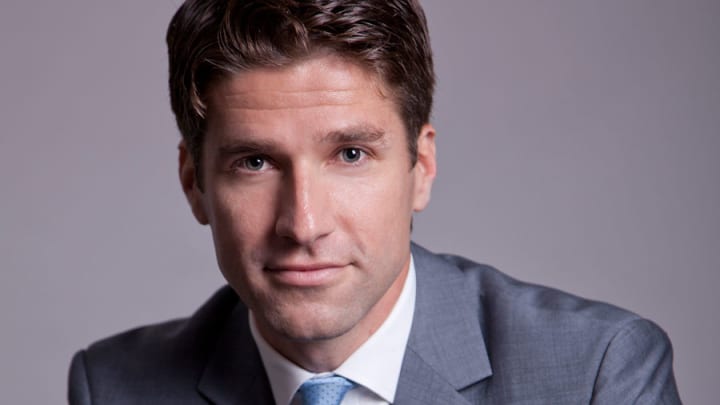Lack of Pay Keeps Kyle Martino, Others From Running for U.S. Soccer President

The biggest barrier to entry for potentially qualified U.S. Soccer presidential candidates is that the job is an unpaid position. Former USMNT player and current NBC analyst Kyle Martino told SI.com the time for change is now and he seriously considered running for president, but he decided he couldn’t afford to give up his TV commentary role and take a full-time position for no money.
Several other potential candidates have said the same. Gulati earns money from teaching at Columbia University and his six-figure salary as a member of the FIFA Council. I’m told that the board of U.S. Soccer has had discussions—though not serious ones—about making the presidency a paid position, but that change likely won’t happen until after Gulati leaves office.
Martino, whose interest in the U.S. Soccer presidency was first reported by Bleacher Report, sent this statement to SI.com:
“I, like most U.S. fans right now, am heartbroken. I’ve loved this game and this team all the way back to the Hugo Pérez days and am feeling very protective of it in this moment. This historic low point for the program, along with the encouragement of some I respect greatly in the soccer community, has led me to seriously consider running for U.S. Soccer president.”
“The time for change is now, but unfortunately some of the aspects of the U.S. Soccer structure that I would want to change prevent people like me—and others who may be more qualified than me—from running. One such example is how the position not being a full-time salaried one acts as a deterrent to those with the qualities to run but not the financial means.”
“Not only does the lack of salary shrink the pool of potential presidents, it also diminishes the accountability of the current one. The irony is if I did run, one of the issues I would run on is changing the pay-to-play model to increase participation among an incredibly important demographic being priced out, but the reason I can’t run to do that is because I can’t afford it.”
“I want to make it clear that I’ve decided to go public about wanting to run not to bring attention to myself, but to bring attention to the first problem that could easily be fixed to increase the quantity and quality of those who step forward during such an important juncture in our game’s history. Little steps can make big strides, but the pressure to make these steps doesn’t exist unless people create that pressure by continuing to draw attention to the stagnation.”
